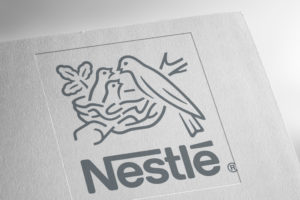Yes, it’s true. Many marketers lied because lying was effective.
Millions of women pour money into cosmetics when manufacturers misleadingly exaggerated about their products have unique features that can “fix” women’ look and make them younger and prettier. Bottle water companies in developed countries were lying that their products are purer than tap water and earned billion of dollars out of it. Most of restaurants, café, and fast food chains use deceitful images about their food. And even now, just by looking around, we can see millions of ads and marketing “tricks” with misleading implications, tricky terms and conditions, broken promises, unnecessary upsells, and disrespectful actions.

As a consequence, marketing, to many people, means manipulation, lying, and deception. This idea is embedded in lots of consumers, including myself. In spite of being a marketer, I need to be aware of different ads and promises that other marketers give, spot their lies if possible, and do some research before making decisions.
Marketing for good!
Despite these challenges, I am proud to be a marketer, because I believe that marketing can be a force for good. To me, marketing is about spreading meaningful ideas, affecting positive change, and serving the needs of people. The words of Seth Godin, in his book “All Marketers Tell Stories”, have truly inspired me to view marketing as a mission and a pleasure. We all have choices in life, and I choose to be an authentic and impactful marketer, sharing stories that truly matter with my target audience. Marketing has the power to help companies, religions, and countries thrive, if we use it responsibly and with a focus on serving others.
 On the other hand, lying in today’s world, do you think it still work anymore? Short answer – Nope! Sure, you might get a quick win, but in the long run, you’re setting yourself up for disaster. Take Nestle, for example. They promised they were ethically sourcing their cocoa, but they were just putting on a show! Customers saw right through their lies, like when you try to tell your boss you’re “sick” after a wild night out. We all know what’s really going on here!
On the other hand, lying in today’s world, do you think it still work anymore? Short answer – Nope! Sure, you might get a quick win, but in the long run, you’re setting yourself up for disaster. Take Nestle, for example. They promised they were ethically sourcing their cocoa, but they were just putting on a show! Customers saw right through their lies, like when you try to tell your boss you’re “sick” after a wild night out. We all know what’s really going on here!
Another example is Volkswagen. In 2015, they was caught cheating on emissions tests for their diesel cars. They had programmed the cars to emit less pollution during tests than they would in real-world driving conditions. But customers and regulators caught on, and Volkswagen ended up paying billions in fines and settlements. And let not forget French President, Emmanuel Macron, was criticized after removed his luxury watch during an interview about pension change.
Consumers have eagle eyes and can spot even the tiniest changes and inconsistencies even from big, established companies and influencers. Especially in this era of social media and the Internet, a brand image can be easily ruined as anything can be shared in a matter of seconds. Customers can share information and experiences in real-time, fact-check claims made by companies, and hold them accountable for their actions. Companies are now more incentivized than ever to be transparent, honest, and authentic in their sales and marketing efforts.
So, let’s all agree to be authentic and honest in our sales and marketing tactics. It’s like ripping off a band-aid – sure, it might sting a little at first, but in the end, we’ll all be better off for it!

